The Five Areas of the Montessori Curriculum
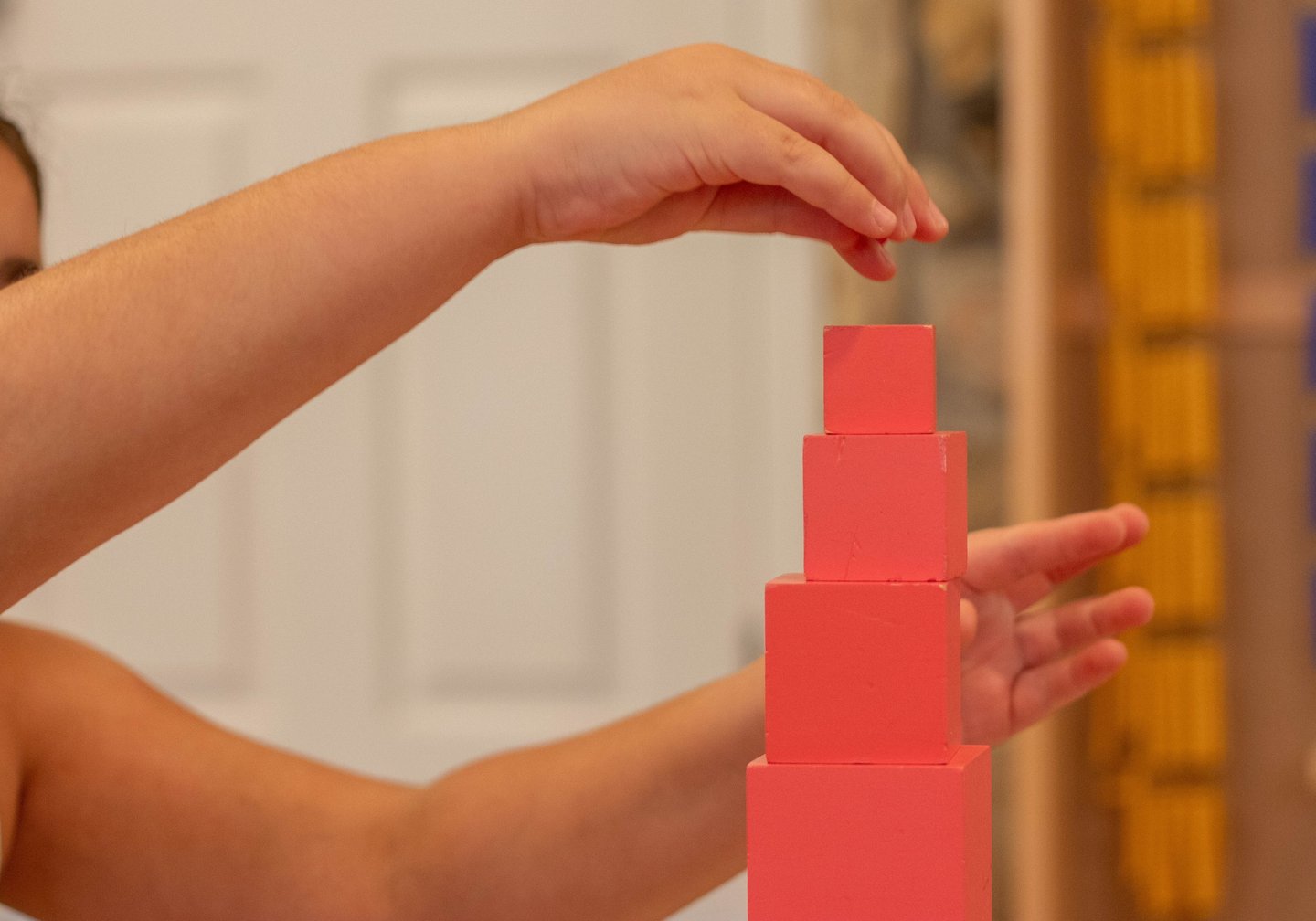

Practical Life
In Montessori education, the Practical Life area is all about helping your child gain independence and confidence by practicing everyday skills. Here, children learn to do things like pouring water, buttoning clothes, tying shoelaces, and cleaning up their space — activities that might seem simple but are incredibly important for their development. These hands-on exercises teach your child how to care for themselves and their environment, while also improving their focus, coordination, and patience. Practical Life activities encourage children to take responsibility and feel proud of what they can do on their own. Children build independence and concentration through everyday activities like pouring, cleaning, dressing, and food preparation. These skills lay the foundation for responsibility and self-care. By supporting your child in mastering these real-world skills, the Practical Life area helps build a strong foundation for lifelong learning and self-confidence.
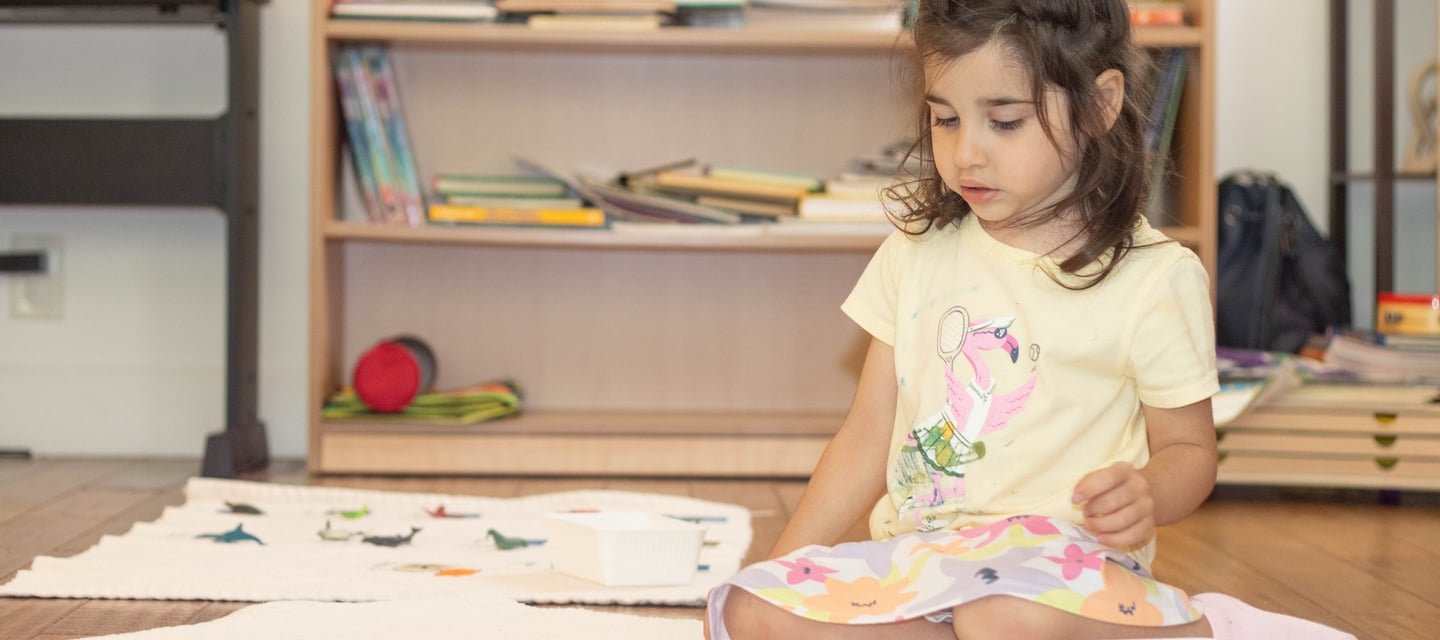

Sensorial
The Sensorial area helps your child explore and refine their five senses—sight, sound, touch, taste, and smell—using specially designed Montessori materials. Through hands-on activities, children develop important skills like observing details, comparing objects, and sorting items by size, color, shape, and texture. These experiences sharpen your child’s ability to notice and understand the world around them, laying the groundwork for future learning in subjects like math and science. The Sensorial area encourages curiosity, critical thinking, and concentration—all vital for your child’s growth and academic success.
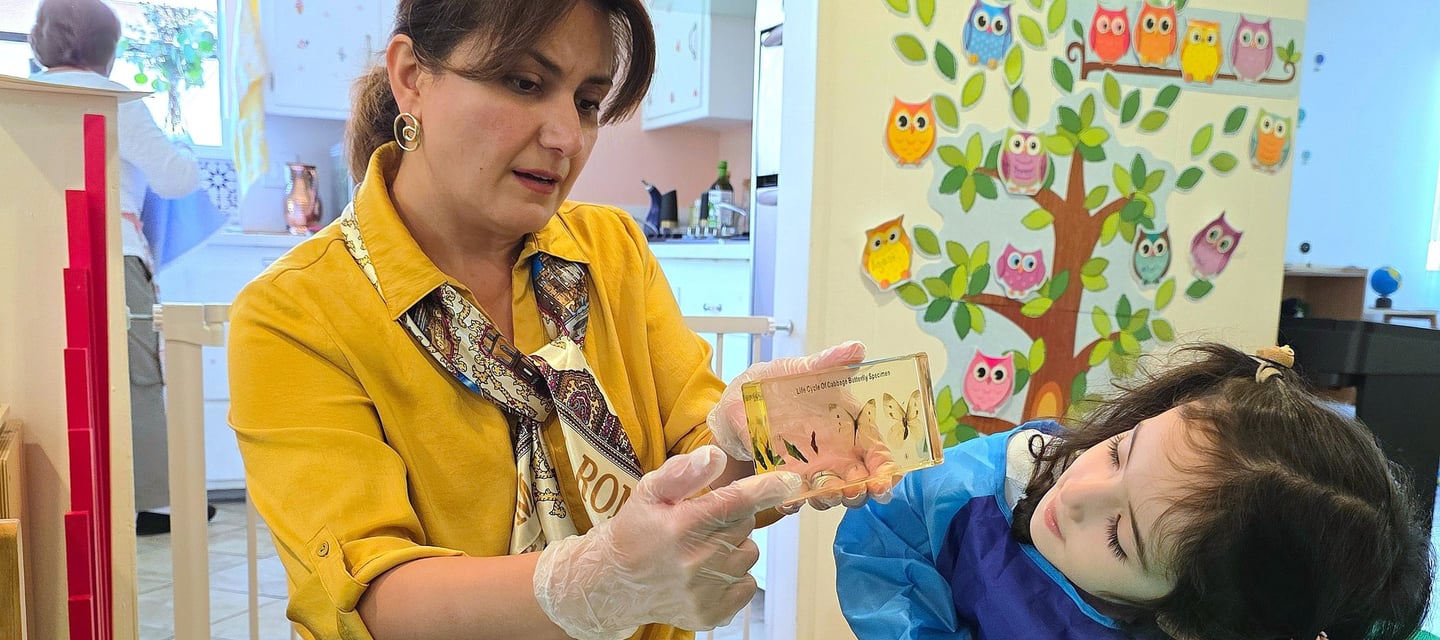

Mathematics
In Montessori classrooms, the Math area helps your child build a deep, lasting understanding of numbers and problem solving — starting with hands-on experience and gradually moving to abstract thinking. Children use carefully designed materials (like beads, number rods, and blocks)
Concrete → Abstract:
Children first manipulate real, tactile materials to feel math concepts (counting, adding, grouping). Later they move to symbols (numerals and written operations) once the idea is clear in their minds.
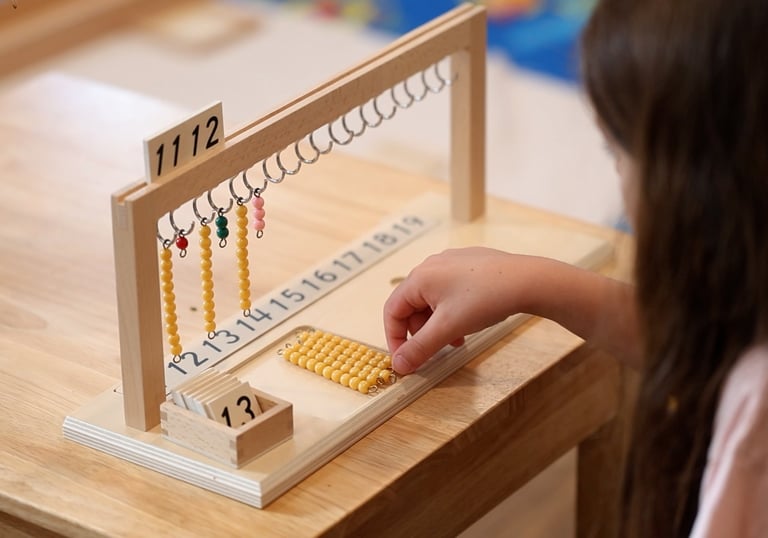

Self-directed exploration:
Kids choose math activities at their own pace, which builds curiosity and lets them deepen understanding without pressure.
Teachers observe each child and introduce lessons when the child is ready, so learning is meaningful and neither rushed nor stalled.
Individualized instruction:
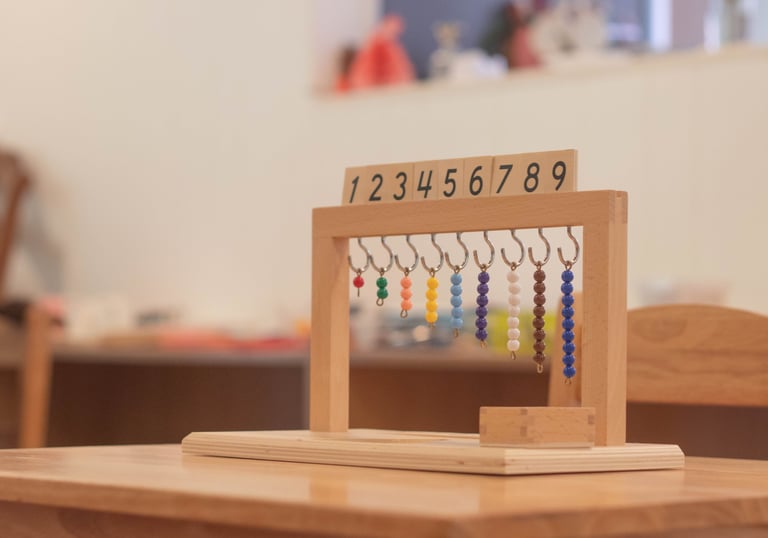

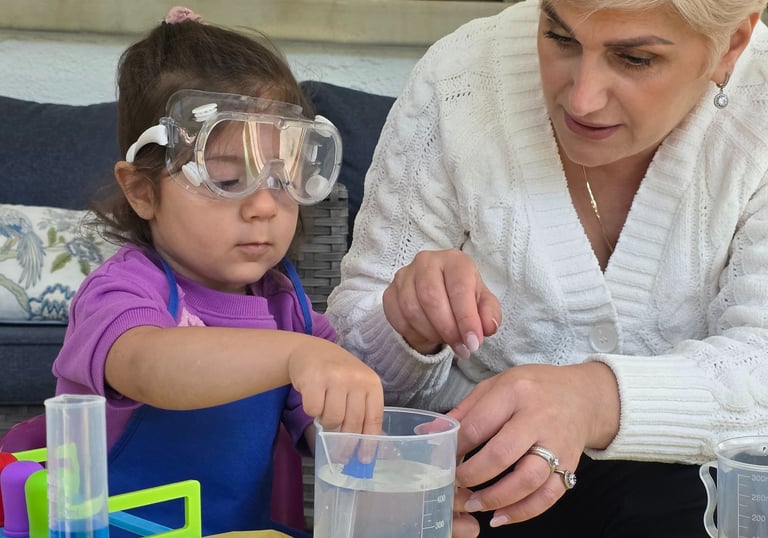

Real-life integration:
Math is connected to everyday moments — measuring for snacks, counting steps, or sorting objects — so children see how math matters in daily life.
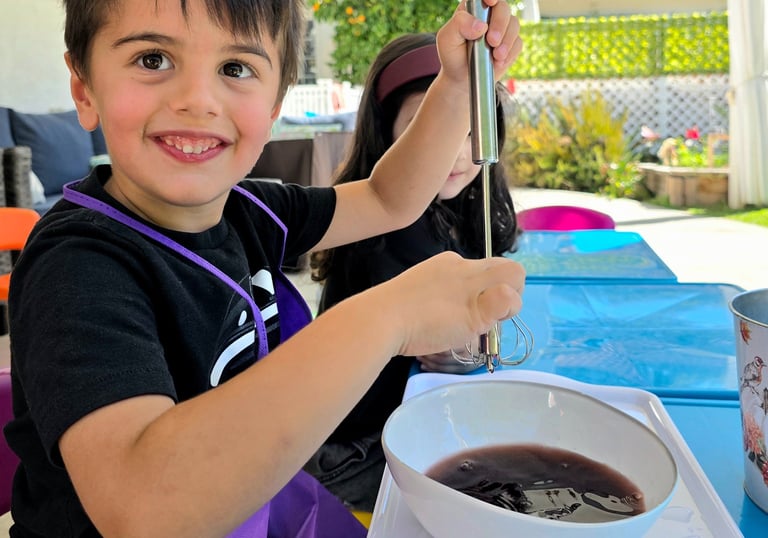

Builds strong foundations:
Early work with Montessori math materials develops counting, sorting, pattern recognition, and number sense — skills that support long-term success in math and beyond.
Children are encouraged to try, make mistakes, and try again in a low-pressure setting, which builds resilience and a love of learning.
Fosters a growth mindset:
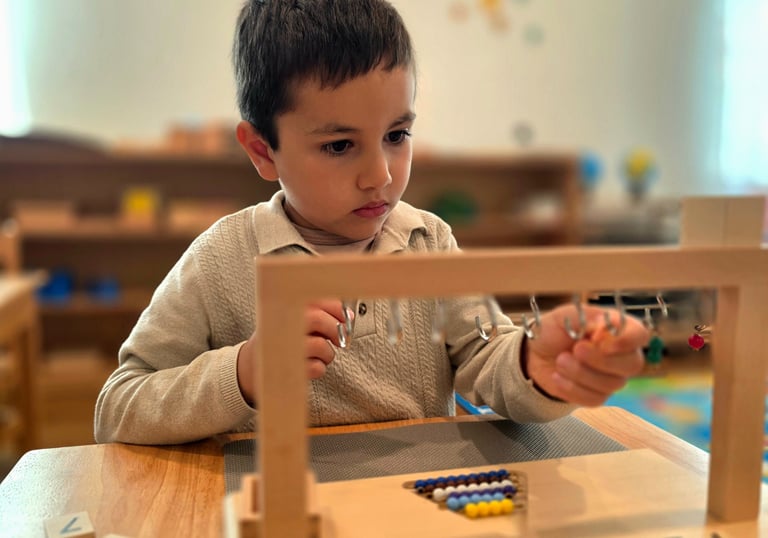

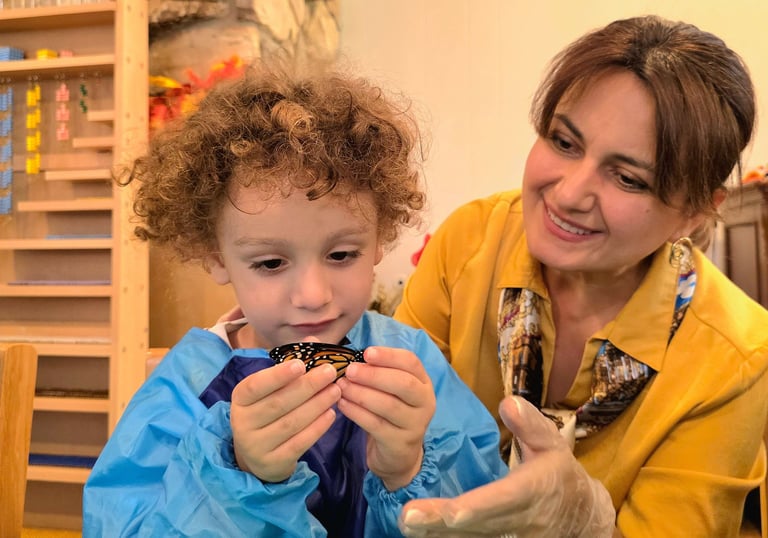

Language
The Language area in Montessori education supports your child’s natural progression from speaking to reading and writing, using engaging activities like phonics, storytelling, and word games.
Our little one begins by developing listening skills, learning sounds, and building vocabulary through songs, stories, and conversation.
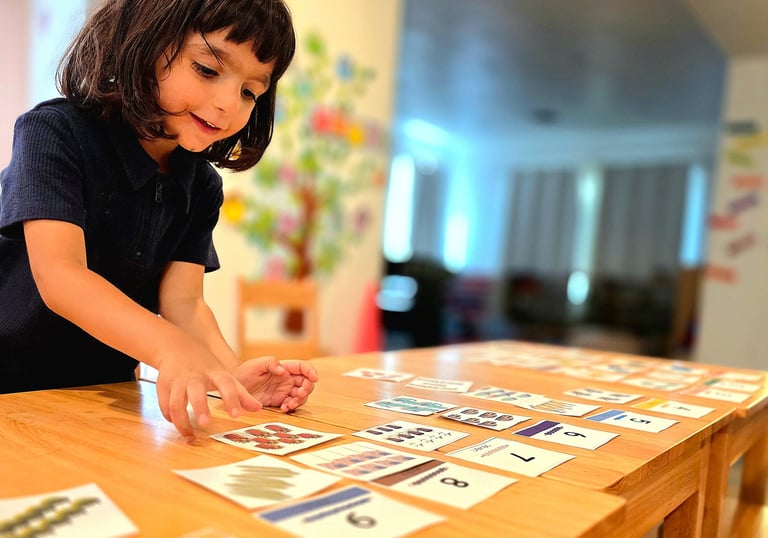

Children start exploring letter sounds, matching sounds to letters, and practicing early writing. They enjoy creative storytelling and are introduced to multiple languages, enriching their communication skills and cultural awareness.
Children refine their reading and writing abilities, expanding vocabulary and grammar through more complex language activities, fostering confidence and fluency.
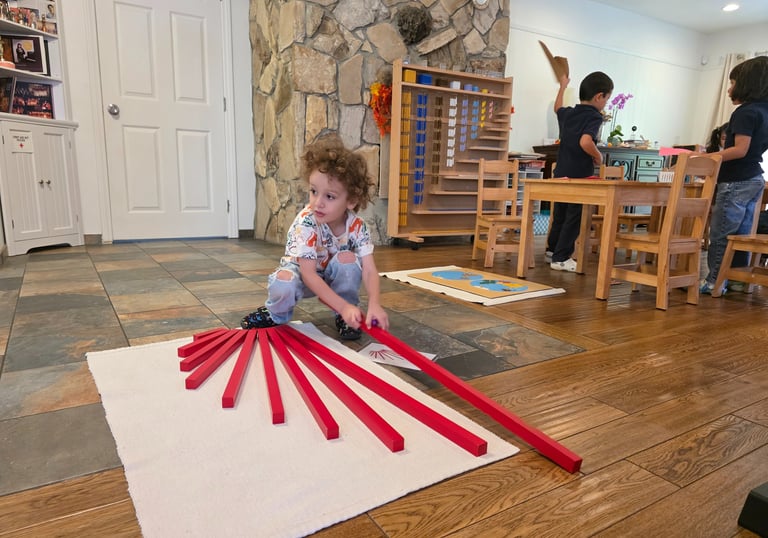

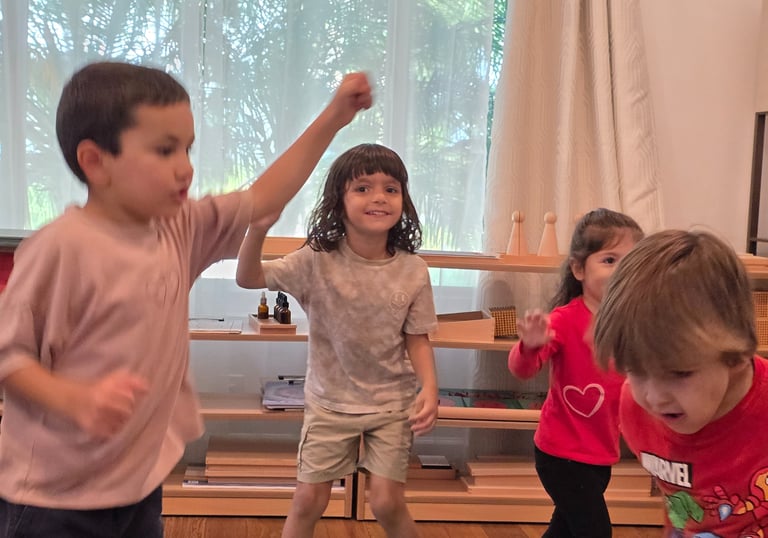

Cultural Studies
The Cultural area introduces your child to the rich diversity of the world around them through subjects like geography, botany (plants), zoology (animals), science, music, art, and different world cultures. Using engaging materials and activities, children explore the natural environment, learn about people and places, and discover how everything in life is connected. This area inspires curiosity and respect for diversity, helping your child develop a broader understanding of the world and their place in it. By experiencing music, art, and stories from various cultures, children also grow empathy and appreciation for different traditions and ways of life. Through hands-on learning and exploration, the Cultural area supports your child’s cognitive growth and social awareness, laying a foundation for lifelong curiosity and global citizenship.
